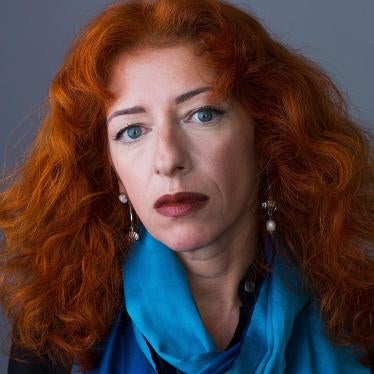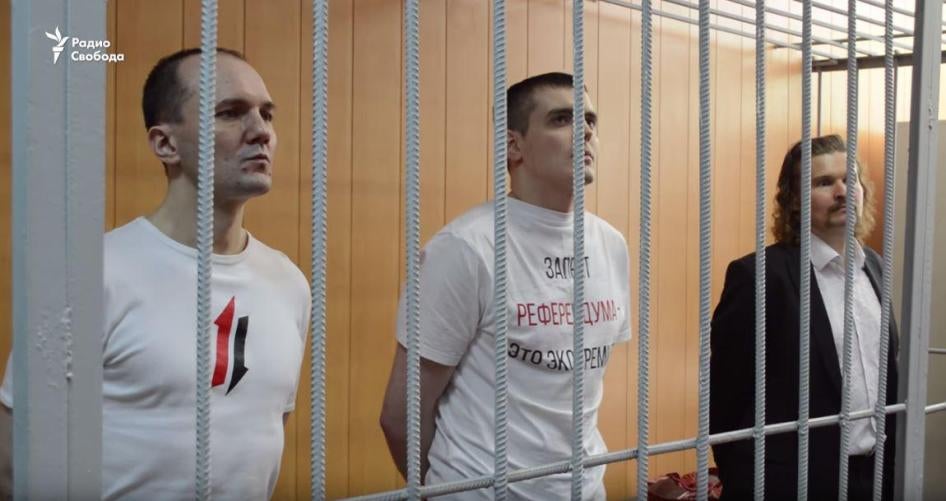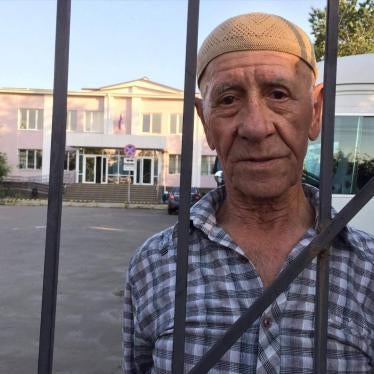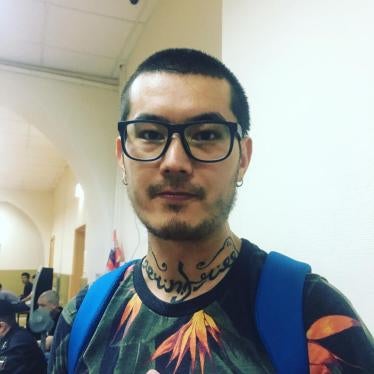This week, a Moscow court found four members of the group For Responsible Government guilty of operating an “extremist organization” and handed down prison sentences ranging from three-and-a-half to four years.
One of them, Alexander Sokolov, is a journalist who covers current affairs and corruption for a major Russian media holding, RBC. He is the only one of those prosecuted not among the group’s leaders. Sokolov’s last investigative piece, published several weeks before his arrest, was about massive embezzlement of government funds in the construction of Vostochny Cosmodrome, a space launch facility, in Russia’s far east. RBC and Reporters Without Borders both linked his prosecution to his journalism and advocated for his release.
Police arrested Sokolov, Yuri Mukhin, and Valery Parfenov in July 2015, and arrested Kirill Barabash in December 2015. All except Mukhin have been in custody since their arrest. All four will appeal the verdict.
For Responsible Government sought to organize a dubious country-wide referendum, proposing to include a provision in the constitution that would hold Russia’s president and parliament accountable for the deterioration of living standards. The controversial aspect was the suggestion, among other things, that ordinary citizens could en masse punish those responsible by execution. The prosecution argued that For Responsible Government used the “specious excuse” of conducting a referendum to carry out “extremist activity” and disseminate “extremist materials.” A leaflet popular with the group, “You elected [them], you get to try [them],” is among the more than 4,000 items on Russia’s Federal List of Extremist Materials.
Provocative and distasteful their campaign may have been, but extremist, criminal activity worthy of years of imprisonment? No. Indeed, the group is a small, marginal group, with a minor following. Alexander Verkhovsky, head of SOVA Center, a prominent Russian think-tank, told Human Rights Watch that while a system that allows citizens to sentence public officials to death would be unacceptable, “there is nothing in either domestic or international law that prohibits … advocating for constitutional amendments, even if they’re radical.” Verkhovsky also pointed out that while the group had engaged in offensive “nationalist and Stalinist ideology” and “xenophobic propaganda,” it has not been involved in violence. SOVA Center considers the verdict unjustifiable, and one of Russia’s leading human rights groups, Memorial, listed the four men as political prisoners.
Russian authorities increasingly conflate criticism of government with extremism and use the country’s excessively broad and vague anti-extremist legislation to silence political opponents and quash free speech. Russia, including its courts, needs to uphold its human rights obligations and accept that information or ideas that offend, shock, or disturb are covered by free speech protections and respond through robust democratic debate, not prosecutions.










